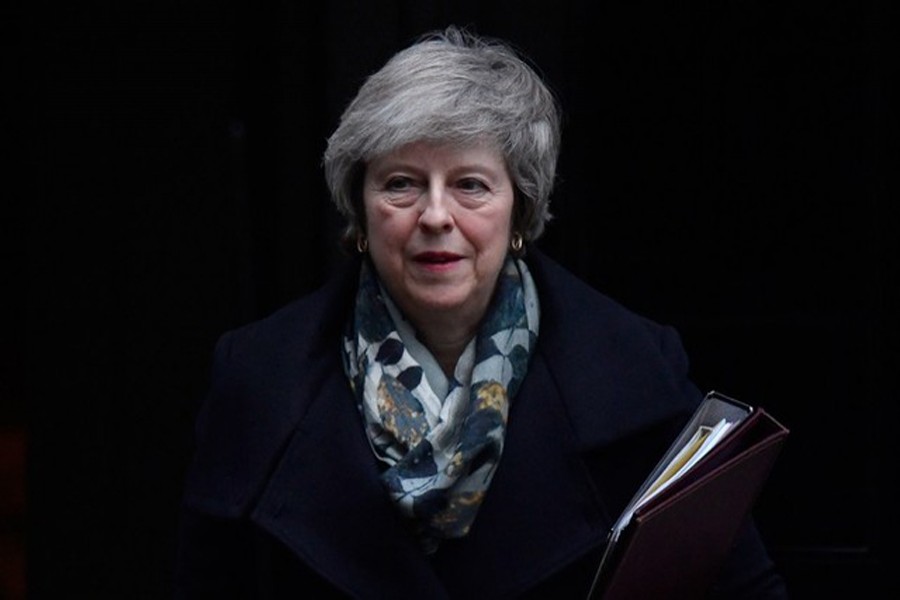Prime Minister Theresa May said on Monday that lawmakers blocking Brexit is now a more likely outcome than Britain leaving the European Union without a deal.
Parliament is deadlocked over how to proceed with Brexit, Britain's biggest shift in foreign and trade policy in more than 40 years, and is expected to vote against May's deal on Tuesday, plunging the departure from the EU into deeper uncertainty.
May's minority government, which is propped up by a small Northern Irish party, was last week defeated twice in parliament on Brexit, with lawmakers creating a new obstacle to a no deal Brexit and forcing May to promise she would come up with a 'plan B' within days if her deal is rejected.
"There are some in Westminster who would wish to delay or even stop Brexit and who will use every device available to them to do so," May will say in a speech to factory workers in the leave-supporting city of Stoke-on-Trent in central England, according to advance extracts.
She will add that, based on the evidence of the last week, she believes it is more likely that members of parliament (MPs) will block Brexit than that Britain will leave the EU with no deal to cushion the economic shock and prepare a future relationship with the EU, her office said.
May's deal has come under fire from all sides, with opponents of the EU seeking a cleaner break and many pro-Europeans pressing for a second referendum.
The Sunday Times, citing a senior government source, reported that rebel lawmakers were planning to wrest control of the legislative agenda away from May next week with a view to suspending or delaying Brexit.
Urging lawmakers to support her deal, May will say that, ahead of the 2016 referendum vote, both her Conservative party and the opposition Labour party made it clear they would implement the British people's decision.
"Those were the terms on which people cast their votes. If a majority had backed 'Remain', the UK would have continued as an EU member state," she will say.
"The vast majority of people would have had no truck with an argument that we should leave the EU in spite of a vote to remain, or that we should return to the question in another referendum."
May will ask lawmakers to "consider the consequences of their actions on the faith of the British people in our democracy".


